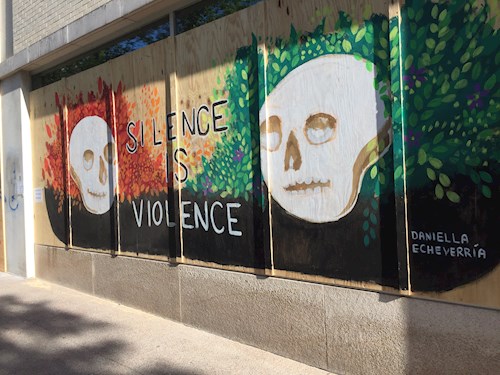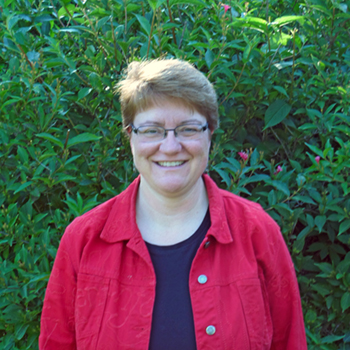

Kathy Kuntz
The murder of George Floyd has prompted thousands of protests around the US and the world as well as millions of conversations about racism. Everywhere I look I see conversations about policing and community justice. I am hopeful this is the beginning of a long-overdue discussion about racism in the US. And I’m hopeful that we’ll address a comprehensive set of issues affected by racism, that we’ll address everything—including climate change.
The video of Floyd’s death is powerful. Many of us were deeply affected by watching the disregard for Floyd’s wellbeing—the video told a compelling story about the brutal racism in our country.
Some forms of structural racism are more difficult to capture on video. People of Color in the US are exposed to more pollution than whites and are thus more likely to suffer from a variety of respiratory and cardiovascular issues. And African Americans are more likely to live near highways, airports, refineries and other sources of hazardous pollutants. Although it's getting better, People of Color are under-represented in energy efficiency and clean energy. And low-income communities suffer the most from the natural disasters that become more likely in a changing climate, even though they are not responsible for the bulk of emissions that causes that changing climate. Still, because these dynamics play out over decades, it can be harder to see that narrative. It may also harder to see that narrative because in many ways the villain in this climate story is us, you and me.
I’m not asserting that you or I advocated for pollution in communities of color. But for decades people like me—white, well-educated middle class folks—lobbied hard to keep that pollution out of our white middle class neighborhoods. At the same time we demanded goods and services, so those facilities had to be built somewhere. That meant a concentration of toxins in frontline communities where housing and health care were usually inadequate to address these pollutants. And it meant that people of privilege could be largely oblivious to the environmental impacts of their choices. This isn't about blame, it's about accountability. I write this as a person of privilege, acknowledging our complicity. My complicity.
The inequities and racism in climate are substantial; some folks create a lot of greenhouse gas emissions while other folks are struggling to survive climate impacts, often because they cannot afford to move to safer ground. The household emissions of an executive who flies around the country on a weekly basis are likely tenfold those of a janitor who takes a bus to work. These inequities play out on a global level where the global north (the US, Europe and China) have created the climate crisis while the global south (Africa, South America, Pacific Islands) sees many of the worst impacts. This is also a local issue in communities across the US, including here in Dane County.
In April our office issued its first climate action plan (CAP) and in the CAP we committed to addressing equity and justice as part of our efforts to reduce emissions. We pointed to groundbreaking work by the NAACP on how local governments can engage frontline communities in climate action and we committed to follow NAACP recommendations about listening to and collaborating with frontline communities. Our office has been working with stakeholders through the Healthy Wisconsin Leadership Institute on the intersection of climate, health and equity. For us, climate justice means ensuring that the populations most affected by climate change participate in creating programs and policies to address climate change. Climate justice means upending the system where people least responsible for the climate crisis bear the greatest climate burden.
The last weeks have reinforced for me the urgency of our climate justice efforts. When I see someone marching with a sign that reads “I can’t breathe” I think about the knee on George Floyd’s neck but I also think about the particulate matter and other pollutants that lead to increased asthma in African American children. Marine biologist and CEO of Ocean Collectiv, Ayana Elizabeth Johnson put forth a compelling call to action in an op-ed in the Washington Post last week:
So, to white people who care about maintaining a habitable planet, I need you to become actively anti-racist. I need you to understand that our racial inequality crisis is intertwined with our climate crisis. If we don’t work on both, we will succeed at neither. I need you to step up. Please. Because I am exhausted.
I hear and accept Ayana’s call to action. Like so many other Americans, I know we can do better, starting right now. If you want to join our efforts please let me know. I want to hear your thoughts and ideas. Together we can address climate change in ways that create a better tomorrow for everyone in Dane County.

Kathy is the Energy & Climate Specialist in the Dane County’s Office of Energy and Climate Change. In that role she's leading efforts to implement the Climate Action Plan. Prior to coming to Dane County, Kathy led Cool Choices and, prior to that, she led Wisconsin's Focus on Energy program.
The Dane County Office of Energy & Climate Change maintains this blog as a way to offer:
To be sure that you don't miss new blog entries, subscribe to our email updates.